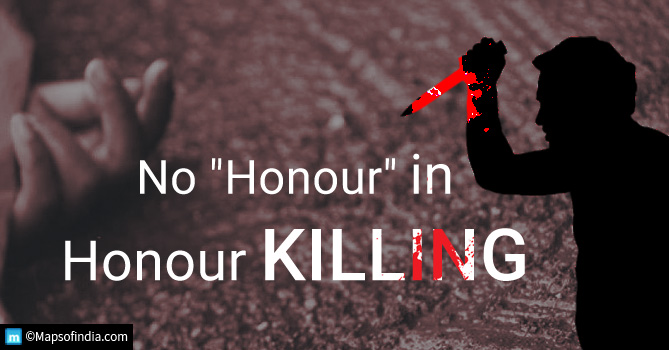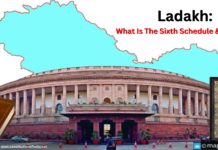
In September 2018, a 23-year-old man was murdered in broad daylight in front of his pregnant wife in Telangana. Among the seven people charged, are the wife’s father and uncle who were unhappy with the marriage. The “honour” killing triggered mass protests, but unfortunately, this wasn’t the first case to have come up. In all scarring likeliness, it will hardly be the last.
As an Indian, we are taught to be proud of our culture, but there are many people who turn into monsters under the pretext of preserving the same. The Manoj-Babli murder case shook the entire country back in 2007, but ten years later, has anything changed?
India and its tales of honour killing
In May 2018, the body of 23-year-old Kevin Joseph was found inside a local canal in Kerala. His body bore brutal injury marks, and the post-mortem report showed that he had been tortured to death. He was murdered by the family members of his wife, because they did not approve the marriage.
In September 2013, a young couple from Rohtak, Haryana, was brutally murdered by the girl’s family after the two had eloped. She was beaten to death in public, while the boy had his arms and legs broken, before he was ultimately beheaded. The examples of these shameless killings are countless, and sadly, not in the least bit rare. According to the National Crime Record Bureau (NCRB)’s 2016 data, honour killings in the country had increased by a shocking 796% from the previous year.
What is the mindset?
Although states like Haryana are generally associated with honour killing, the truth is, it’s a nation-wide problem. The reasoning is simple – it is not a problem of the place, but rather of the mindset the perpetrators carry. So many couples have lost their lives, solely because they married against the wishes of their family. Issues like marrying outside of caste, religion etc become so big, that closest of blood relations turn murderous. But, why?
Ours is a country that stands divided on the basis of class, caste, religion, and what-not. We are number four in the world for the most cases of religion-related hostilities. No wonder then, that this general communal hatred also finds its way into families so often. The habit of asking about a person’s caste while making introductions is a very normalised practice in our households. It is precisely because of these rigid differences in the society, that inter-caste or inter-religion marriages often end up with the newlyweds being murdered.
We might be living in the 21st century, but most of us still carry the same age-old beliefs, and keep on finding ways to justify it.
What can be done?
Recently, there have been discussions in the country about the need to declare “honour killing” as a separate crime. Doing so, it is hoped, will act as a strong deterrent, while at the same time, making justice-granting in these cases easier. To a certain extent, it is true. Of course, it will not be a magical solution, but with a problem as grave as this, every single correctional step is important, no matter how small.
From a broader perspective, the true solution lies in changing the outlook of our people. Limiting a person entirely to whatever community they come from, is largely problematic. Secondly, who a person chooses to marry, or spend their life with, is entirely a personal choice. Nobody other than the two people in question, have the right to decide what they want. This change in mindset however, will take significant amount of time, especially in a country like ours.
Conclusion
What’s scary about these murders is that they are almost always committed by close family members. The very people who are supposed to be a person’s ultimate source of security, end up being the exact opposite. And, for what? Preserving a so-called “honour”, that for some reason becomes more important than the life of a person. It is ironical that we name these murders “honour” killings, when there is not a hint of honour in the action.
Nobody has the right to impose their beliefs on another person, let alone denying somebody the right to live. In the 2013 Haryana killings, the father of the girl had no regrets, and was quoted as saying “I’ll do it again if I have to”. The family of the boy refused to take his body, or even file a complaint against the murderers. It is sickening to see a mentality like that, all in the name of safe-guarding some highly problematic values.
As we move further into the 21st century, it is imperative that our mindsets evolve too. If not, then there remains no point in calling ourselves a progressive, developing nation.
Related Articles:
For the sake of honour – Honour Killing
Honour Killing and Caste Violence in Tamil Nadu




